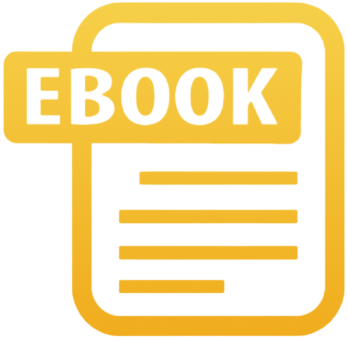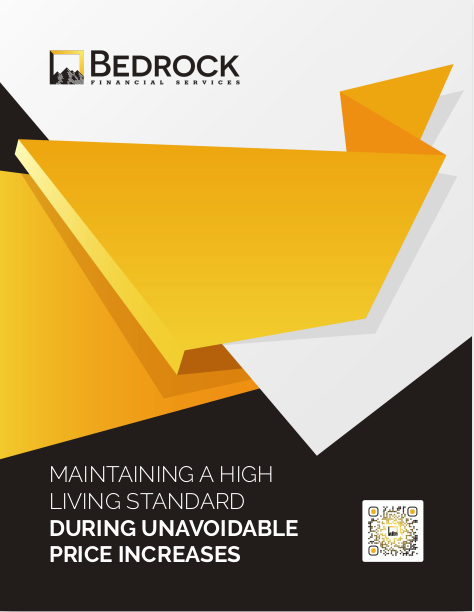Key Takeaways
-
Writing like a real person (not a marketer) builds trust and actually gets responses from clients.
-
In 2025, financial professionals who simplify their emails and focus on connection over promotion stand out in crowded inboxes.
Why Writing Like a Person Works in 2025
With inboxes more cluttered than ever, financial professionals are discovering a simple truth: if your emails sound like marketing, your prospects stop reading. But if you sound like a human being? They lean in.
In 2025, email fatigue is real. Your clients and leads are flooded with promotions, buzzwords, and robotic messages from every direction. That means the single best way to stand out isn’t by shouting louder—it’s by sounding like you actually care.
And that starts with how you write.
What Most Financial Professionals Get Wrong About Email Writing
There’s a common trap many advisors fall into: they try to sound “professional,” but in doing so, they accidentally sound cold or corporate.
You might recognize phrases like:
-
“In today’s dynamic financial landscape…”
-
“Act now to take advantage of this exclusive opportunity…”
-
“We at [Firm Name] value your business.”
The problem isn’t the message. It’s the delivery.
When you write this way, it signals to the reader that this is a mass email, not something worth their individual attention. And in 2025, attention is your most valuable currency.
How to Write Emails That Feel Personal (Even If They’re Automated)
Here’s the good news: you don’t have to write each email from scratch to make it feel like a 1-on-1 message. You just have to adopt a different tone and structure.
Start With a Subject Line That Sounds Like a Real Sentence
Skip the headlines. Skip the gimmicks. Instead, write subject lines that feel like something a friend or colleague would send.
Examples:
-
“Thought of you when I read this”
-
“Quick idea before Friday”
-
“Can we talk about your 401(k)?”
Ditch the Intro Paragraphs That Ramble
Too many emails start with a paragraph that sounds like a press release. Cut that out.
Instead, open with something simple and specific:
-
“I was reviewing your account and noticed something that could save you time.”
-
“Wanted to check in before the quarter ends.”
Use Short Sentences. Short Paragraphs. Simple Words.
In 2025, no one wants to read long walls of text. Your emails should be scannable and friendly.
Think of how you talk in real life:
“I had an idea. It might help you avoid a tax hit next year. Want to hear it?”
That’s how your emails should read.
Add a Natural-Sounding Call to Action
Avoid commands like “Click here now” or “Schedule a consultation today.”
Instead, invite them in like you would in a conversation:
-
“Want to hop on a quick call next week?”
-
“Would you be open to chatting about it this Thursday?”
The Psychology Behind Why This Works
This isn’t just about tone. There’s behavioral science behind it.
When your emails sound like mass marketing, your reader’s brain subconsciously classifies them as low-priority or untrustworthy. But when your writing feels natural, it activates the same part of the brain that handles social connection.
It builds rapport. And rapport builds response.
In a digital world where everyone is optimizing for scale, sounding like a real person is now a strategic advantage.
5 Practical Tips to Apply This Today
1. Write Like You Speak
Don’t overthink it. If you wouldn’t say it out loud to a client, don’t write it.
Test yourself by reading your email drafts out loud. If they sound stiff or overly formal, revise until it feels like a conversation.
2. Use the Word “You” More Than “We”
Your email isn’t about your firm. It’s about the reader.
Instead of: “We offer customized solutions for retirement planning.”
Say: “You might be missing an opportunity to reduce your retirement tax bill.”
Make them the focus.
3. Strip Out Buzzwords
Words like “synergy,” “solutions,” and “leverage” are red flags. They trigger marketing defenses.
Replace them with plain words:
-
Instead of “solutions,” say “ways to help.”
-
Instead of “optimize,” say “improve.”
-
Instead of “utilize,” say “use.”
4. Be Specific About Timeframes
Saying “soon” or “later” feels vague. Give people a clear timeline to respond to:
-
“Can you let me know by Thursday afternoon?”
-
“Let’s try for next Tuesday at 10 AM.”
5. Don’t Be Afraid to Sound Casual
Formality is not professionalism. Clarity is. Respect is.
You can sound approachable and still be taken seriously. In fact, your clients will appreciate the break from corporate talk.
What Writing This Way Doesn’t Mean
Let’s clarify one thing: writing like a person doesn’t mean being sloppy.
It doesn’t mean poor grammar, emoji overload, or slang.
It means:
-
Clarity over cleverness
-
Relevance over routine
-
Connection over conversion
In 2025, that’s what earns trust.
When You Should Still Sound a Bit More Formal
There are times when a slightly more professional tone is appropriate:
-
First-time introductions to high-net-worth leads
-
Regulatory or compliance-related messages
-
Annual portfolio reviews
Even then, you can keep the language human. It’s not about being casual—it’s about being clear.
The Compounding Benefit: More Replies, More Conversations, More Clients
When your emails feel real, people reply.
When they reply, you get more chances to talk.
And when you talk, trust builds.
Most financial professionals aren’t losing business because they’re unqualified. They’re losing it because their emails aren’t making it past the first 5 seconds.
That’s how powerful your tone can be.
Rewire Your Email Strategy Starting This Week
You don’t need to throw out your CRM or abandon your templates. Just adjust how those templates sound.
Here’s a quick checklist you can run through before hitting send:
-
Does the subject line sound like something I’d send a friend?
-
Am I talking to the reader or about myself?
-
Would I actually say this out loud?
-
Is there a real reason to respond?
-
Have I made it easy for them to take the next step?
This mindset shift doesn’t take long. But its impact builds fast.
Writing With Personality Is the New Email Advantage
In today’s inbox wars, your edge isn’t frequency. It’s tone. It’s realness. It’s presence.
When you write like a person, not a marketer, people read. When they read, they reply. And when they reply, your business grows.
If you’re ready to take your outreach from ignored to irresistible, it starts with writing like someone they already trust.
And if you’re looking for tools, training, and strategies to help you build a consistent stream of client conversations, we can help.
At Bedrock Financial Services, we specialize in empowering financial professionals like you with resources that make real human connection possible at scale. From email systems to automation that doesn’t feel robotic, we support the growth behind the message.
Sign up today and let’s help you stand out in every inbox.







